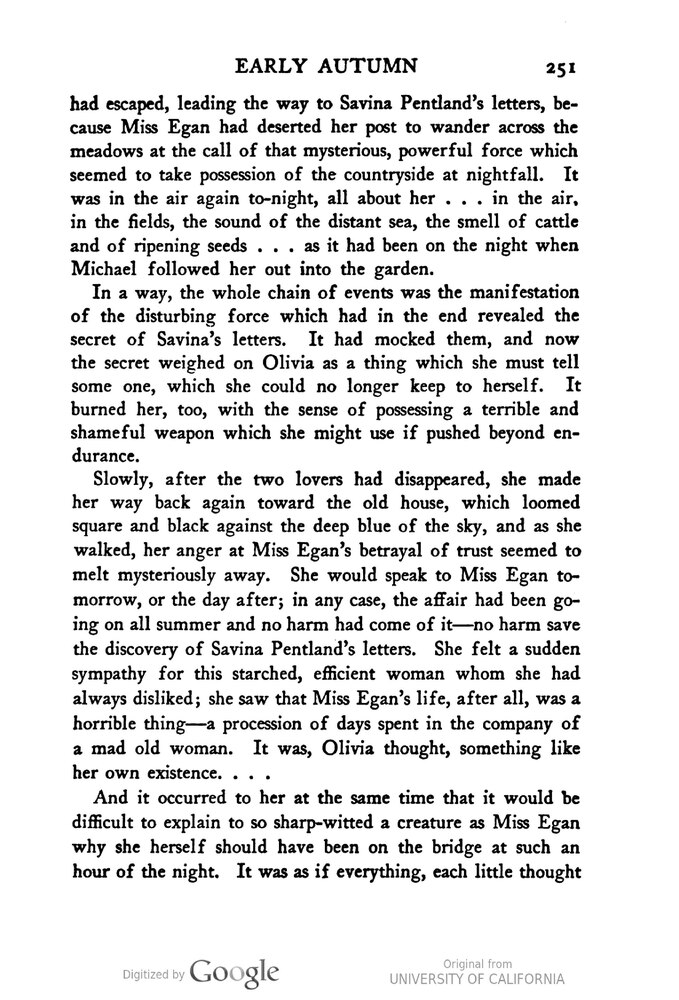had escaped, leading the way to Savina Pentland's letters, because Miss Egan had deserted her post to wander across the meadows at the call of that mysterious, powerful force which seemed to take possession of the countryside at nightfall. It was in the air again to-night, all about her . . . in the air, in the fields, the sound of the distant sea, the smell of cattle and of ripening seeds . . . as it had been on the night when Michael followed her out into the garden.
In a way, the whole chain of events was the manifestation of the disturbing force which had in the end revealed the secret of Savina's letters. It had mocked them, and now the secret weighed on Olivia as a thing which she must tell some one, which she could no longer keep to herself. It burned her, too, with the sense of possessing a terrible and shameful weapon which she might use if pushed beyond endurance.
Slowly, after the two lovers had disappeared, she made her way back again toward the old house, which loomed square and black against the deep blue of the sky, and as she walked, her anger at Miss Egan's betrayal of trust seemed to melt mysteriously away. She would speak to Miss Egan to-morrow, or the day after; in any case, the affair had been going on all summer and no harm had come of it—no harm save the discovery of Savina Pentland's letters. She felt a sudden sympathy for this starched, efficient woman whom she had always disliked; she saw that Miss Egan's life, after all, was a horrible thing—a procession of days spent in the company of a mad old woman. It was, Olivia thought, something like her own existence. . . .
And it occurred to her at the same time that it would be difficult to explain to so sharp-witted a creature as Miss Egan why she herself should have been on the bridge at such an hour of the night. It was as if everything, each little thought
